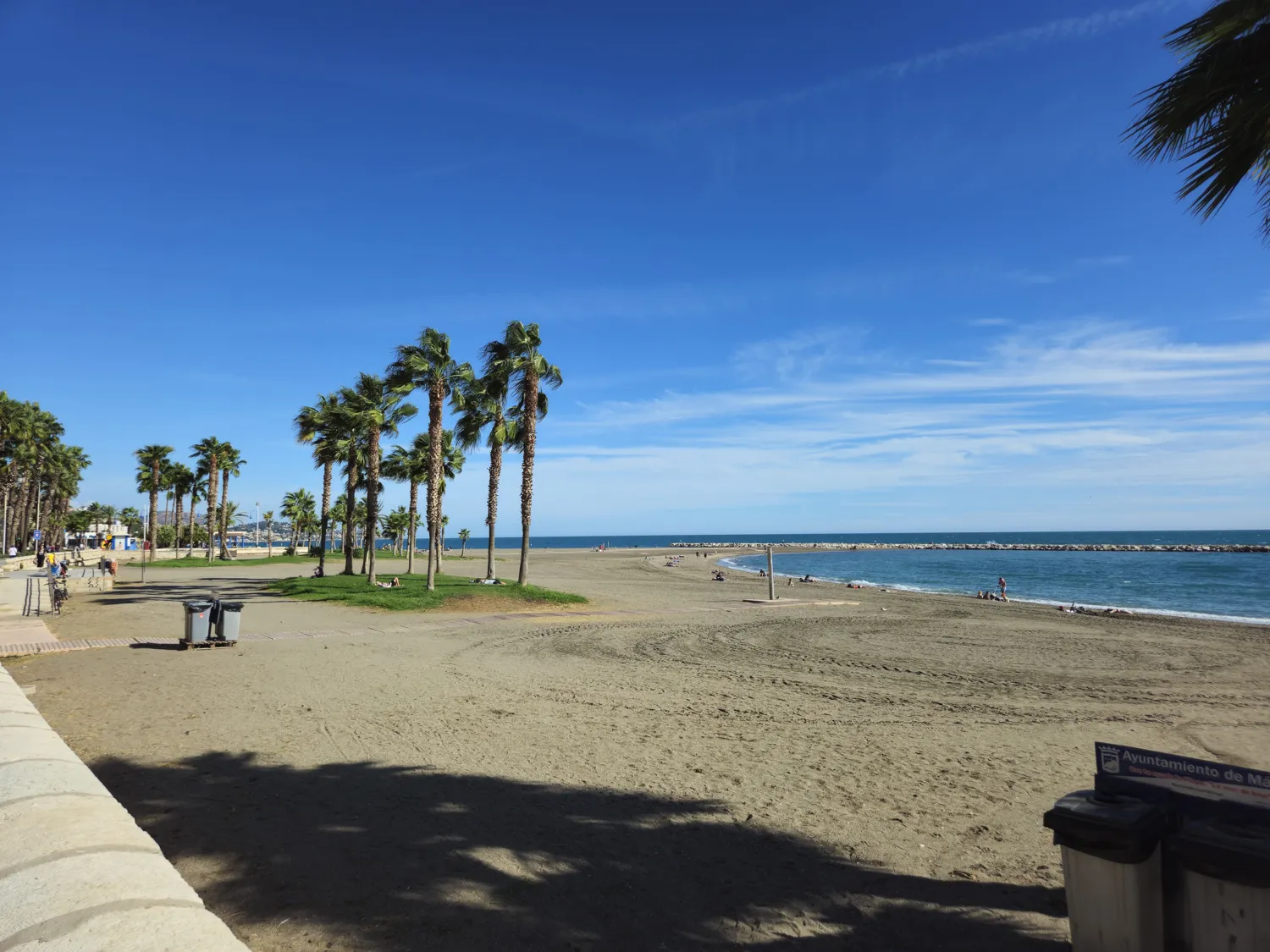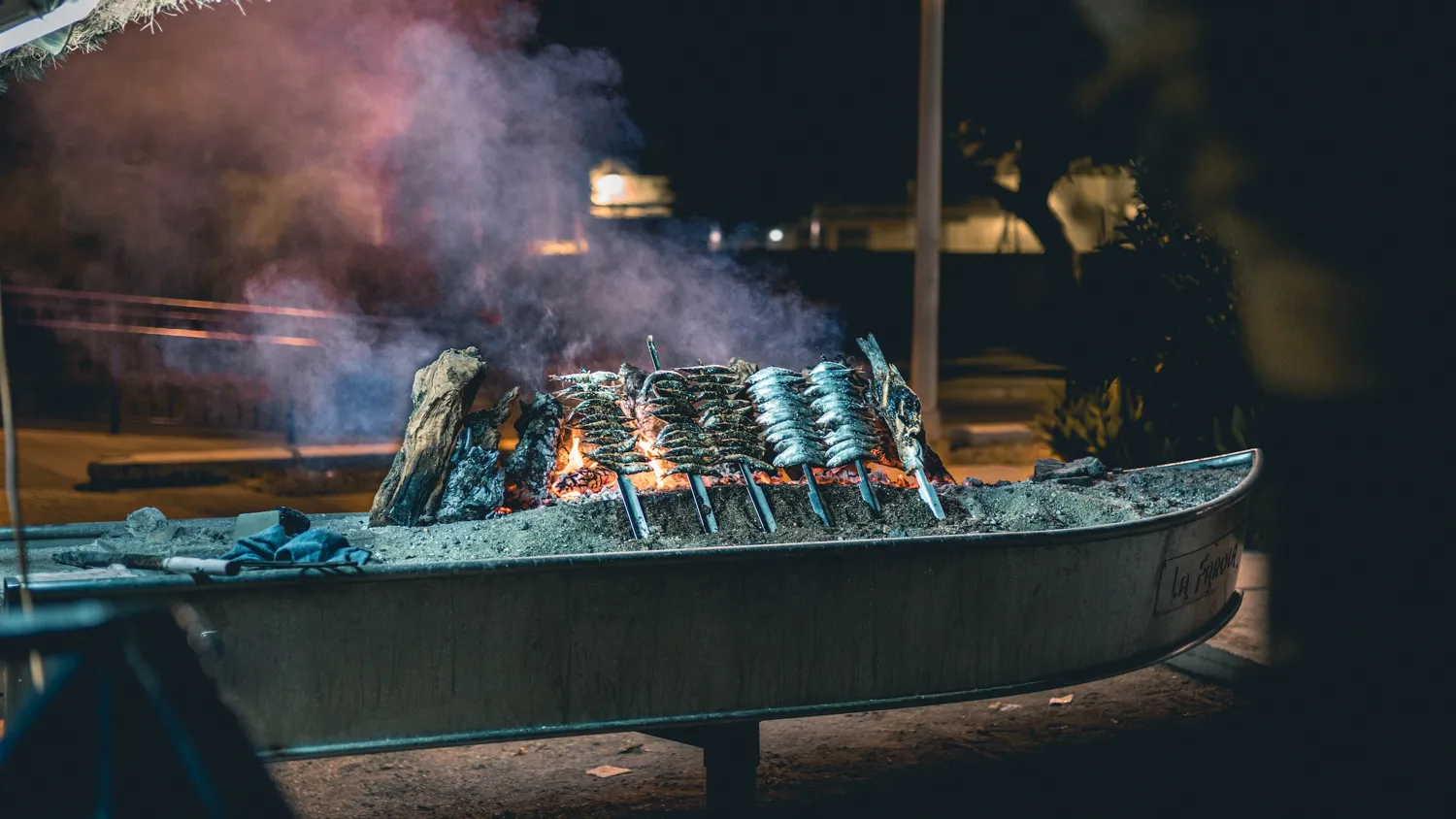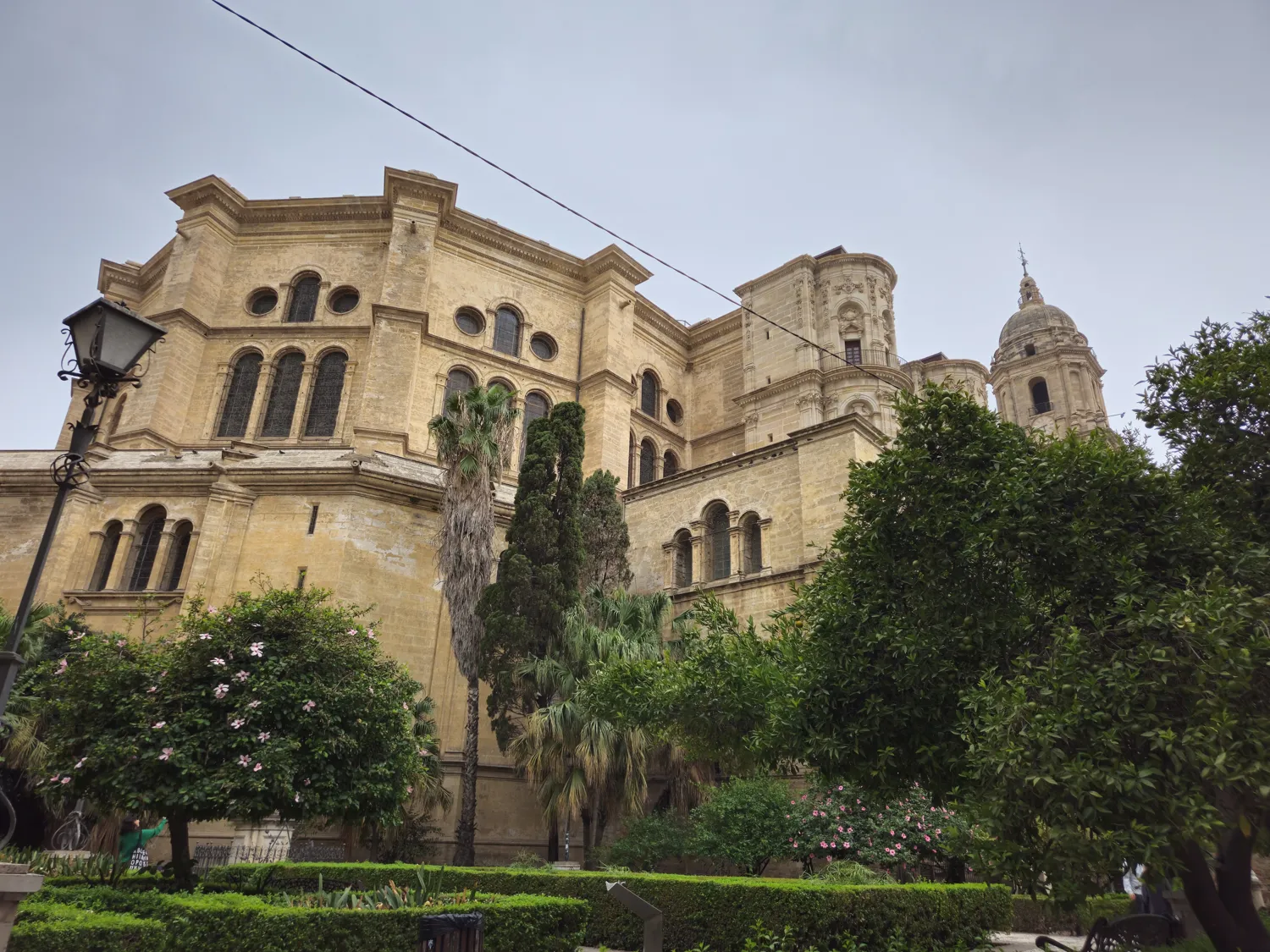From Granada to Málaga: Emerging from the Storm into Sunshine
Setting off from Granada on my motorcycle, the morning presented a welcome change: the skies had cleared, heralding a day of pleasant weather. This change was a symbolic start to my journey, a stark contrast to the stormy experience I had endured just days before.
Granada, with its deep historical roots and the magnificent Alhambra, was shrouded in a fresh, crisp morning air. The city’s mix of Moorish and Spanish influences provided a rich backdrop as I began my ride, with the improved weather lifting the spirits and setting a positive tone for the day ahead.
From Granada, I rode through La Malahá, where the calm and simplicity of village life stood in contrast to Granada’s historical grandeur. The peaceful streets and the gentle pace of life here were a soothing transition as I moved further into rural Andalusia.
Next was Escúzar, a modest town nestled among gentle hills. Its quiet presence on the route offered a moment of reflection and appreciation for the smaller, often overlooked gems in the Andalusian landscape.
Alhama de Granada, perched atop a gorge, was a visually striking stop. Known for its ancient thermal baths, the town was a reminder of the enduring allure of natural landscapes and historical sites in the region.
Ventas de Zaffaraya, a quaint hamlet in the mountains, marked a transition in the landscape. The surroundings here were a mix of greenery and mountain vistas, indicating the approaching shift from inland to coastal scenery.
Then came Puente de Don Manuel, offering a peaceful moment by the serene Lake Viñuela. The calmness of the lake was reflective of the day’s pleasant weather and my own growing sense of relaxation and enjoyment on the ride.
Approaching the coast, Torre del Mar was a vibrant and lively contrast with its expansive beaches and the Mediterranean’s azure expanse. The coastal atmosphere injected a refreshing change, with the sunny skies and sea breeze enhancing the ride’s enjoyment.
Finally, Málaga marked the end of this journey. The city’s sunny, warm climate and bustling streets were a fitting conclusion to a ride that had transitioned from a cold and rainy start to a bright and cheerful end.
This ride from Granada to Málaga turned out to be a perfect reset button after the earlier stormy ordeal. Each location along the way, with its unique character and beauty, contributed to a journey that was not just about covering distances but also about moving from a challenging past experience to a more serene and enjoyable present.
A Day in Málaga
Arriving in Málaga in the late afternoon, I promptly stored my luggage in my hotel room, freshened up, and set out to explore the surroundings. The beach was a mere five-minute walk from where I stayed. I stumbled upon a recumbent bicycle race happening on the beach promenade, which I only realized when a security guard cautioned passersby about the ongoing event. I paused to watch the race briefly but soon continued my stroll, savoring the pleasant weather and gazing into the vastness of the sea, before grabbing a bite to eat and wrapping up the day.
The next day, I had arranged to meet friends for an authentic local dining experience. They had thoughtfully made reservations at a scenic beachfront restaurant. Conveniently, since my hotel was en route to the restaurant, we met there and walked together along the beach. Our meal was a delightful array of tapas and a generous serving of the region’s distinctive paella.
Espetos
A highlight was trying Espetos. They are a traditional Andalusian dish, particularly popular along the Costa del Sol, and they’re a culinary highlight in Málaga. The dish is elegantly simple yet full of flavor, typically consisting of sardines skewered on a bamboo stick.
The preparation of Espetos is as much an art as it is a cooking method. Fresh sardines are the star of this dish. They are carefully skewered, usually half a dozen at a time, on long, thin bamboo sticks. The sardines are left intact, often only gutted, to preserve their natural juices and flavors.
The skewered sardines are then grilled over a wood fire, most traditionally over olive wood, which imparts a unique, smoky flavor to the fish. The grill used for cooking Espetos is often boat-shaped, a nod to the region’s strong fishing heritage. The sardines are placed in a row, resembling a school of fish swimming, and are roasted until the skin is slightly charred and crispy, while the inside remains tender and juicy.
Seasoning for Espetos is typically minimal, emphasizing the fresh taste of the fish. A sprinkle of coarse sea salt is usually all that’s added, although some variations might include a squeeze of fresh lemon juice or a drizzle of olive oil after grilling.
Espetos are not just about the taste; they’re a social and cultural experience. Eating Espetos is often a communal activity, enjoyed outdoors by the beach, surrounded by friends and family. It’s a dish that embodies the simplicity, freshness, and communal spirit of Andalusian cuisine, making it a must-try for anyone visiting Málaga.
The historic center of Málaga
Post-lunch, we took a bus to the city center. There, I enjoyed a guided tour of Málaga’s historic buildings and learned about the city’s rich history, courtesy of my local friends. However, the weather took a turn for the worse. The wind, which had picked up during our meal, brought along rain and a noticeable drop in temperature. We sought refuge in a cozy tea and coffee shop to warm up and enjoy a hot beverage. As the evening advanced and the weather worsened, I decided it was best to return to my hotel and prepare for the next phase of my journey – the long trip back home.
This time in Málaga was truly memorable, thanks largely to my friends who took time out of their weekend to show me around and introduce me to the local cuisine and history.
Málaga represented the beginning of the end of an extraordinary journey across this beautiful country. I had chosen to head back to Germany, as the weather along my planned route was deteriorating, and I preferred not to risk facing severe conditions. I had been fortunate with the weather for most of my trip and didn’t want to tempt fate.


